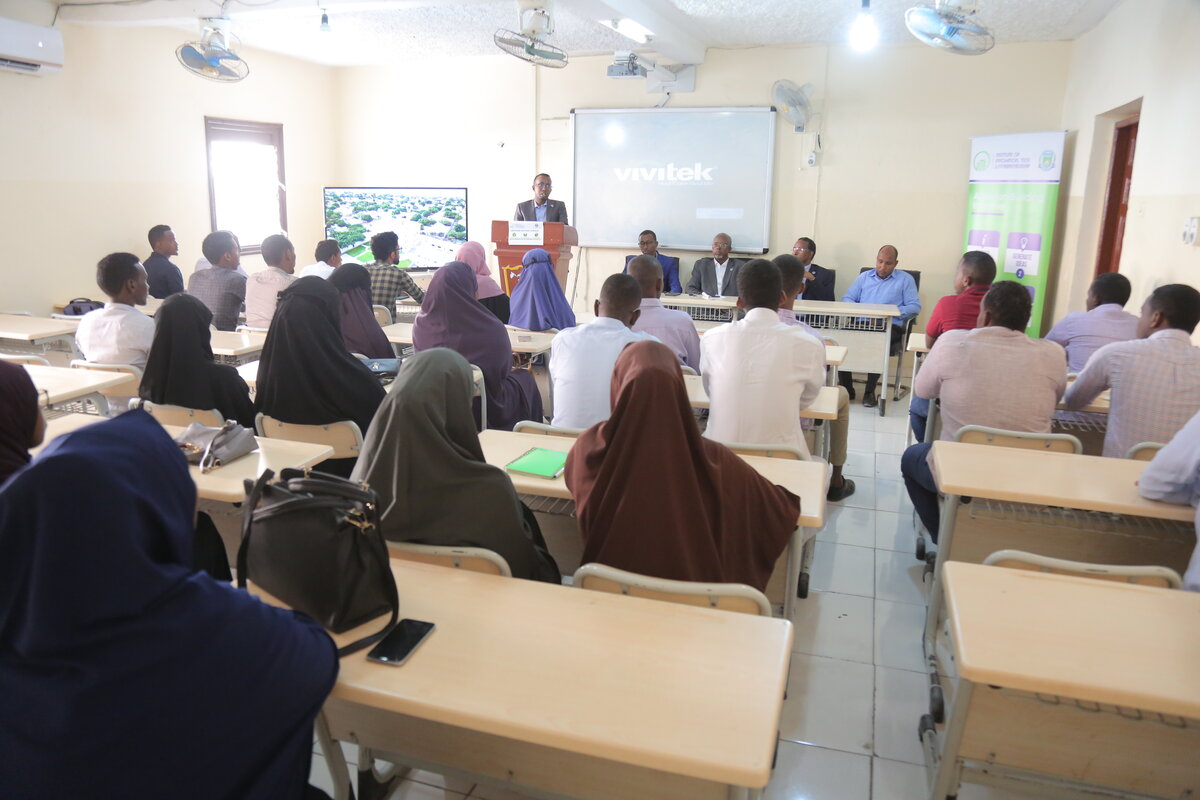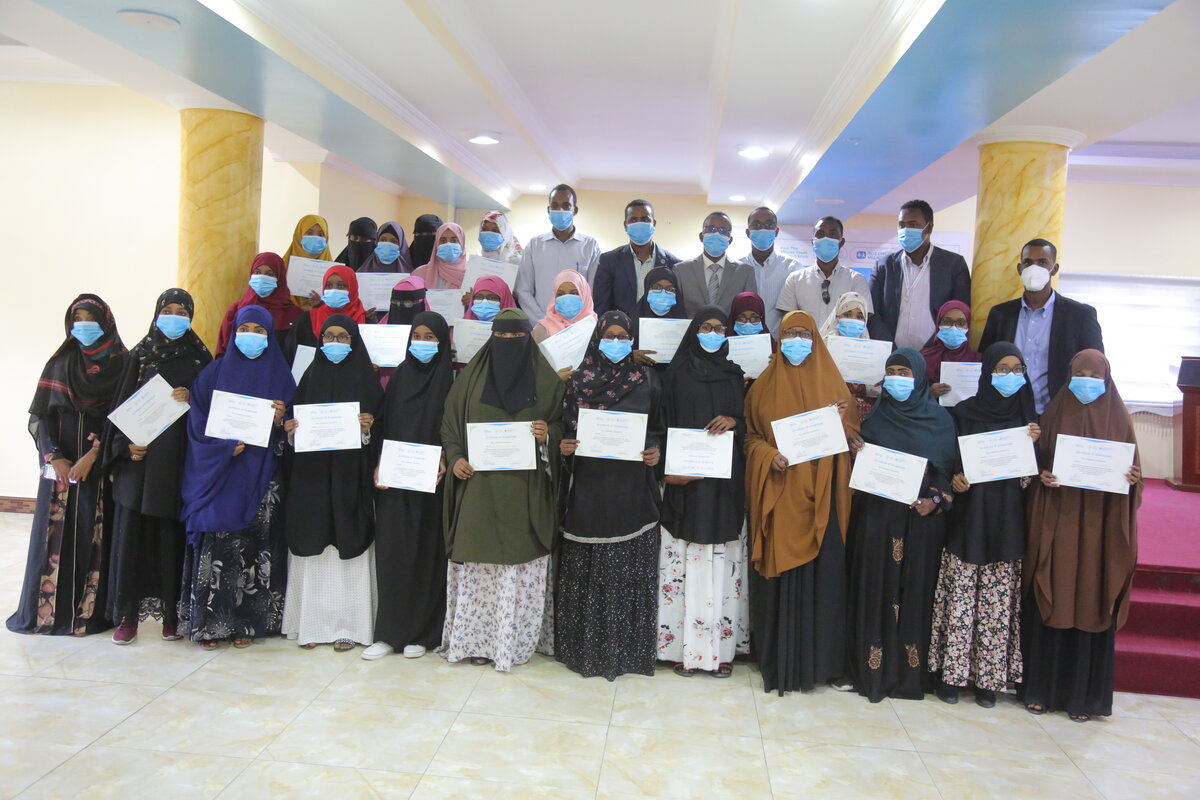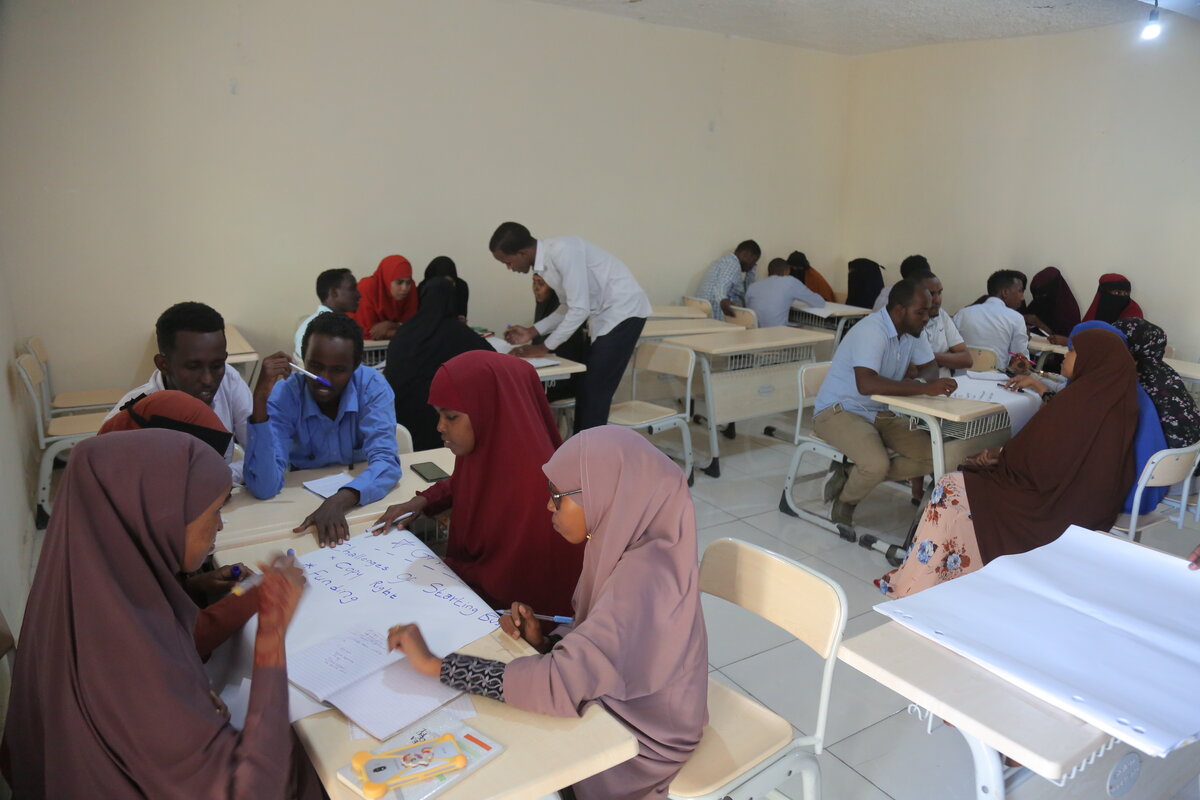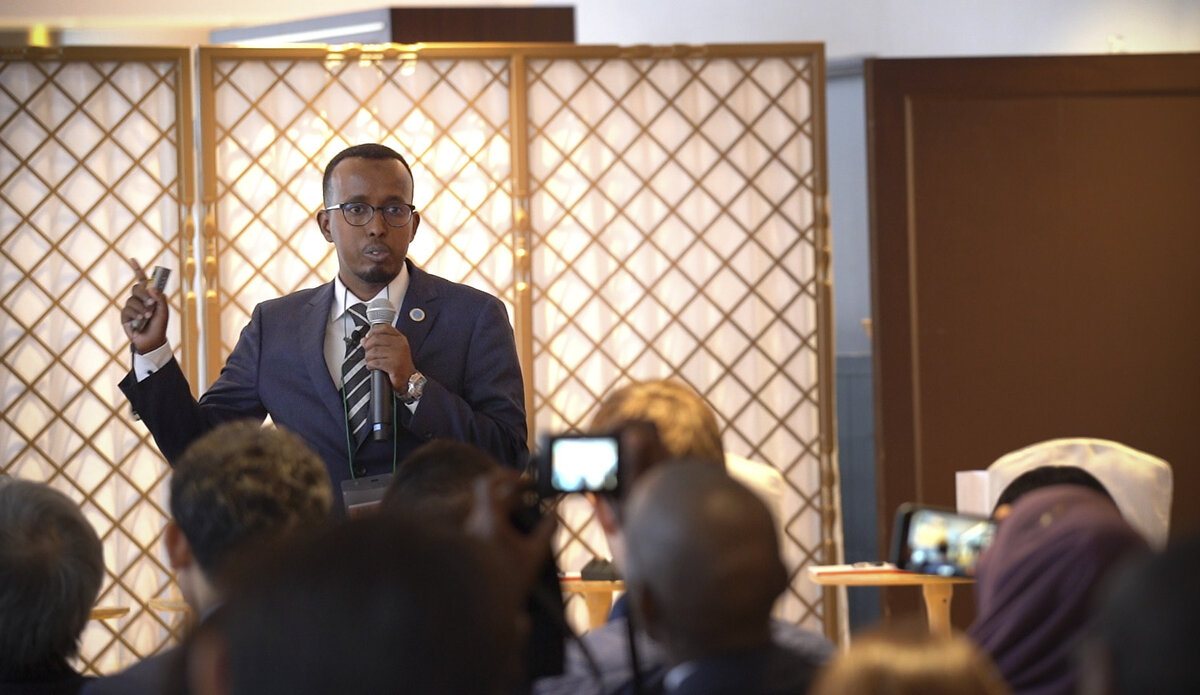Mohamed Muse Hassan: Scaling up women’s entrepreneurship education in Somalia
Mogadishu – Despite its progress over recent years, Somalia remains a far from easy place for business and commerce, especially for women.
Mohamed Muse Hassan is spearheading efforts to change this.
The 32-year-old is Executive Director, as well as Founding Director, of the Institute of Innovation, Tech, and Entrepreneurship (IITE) at SIMAD University, from where he hopes to help steer and shape the famed business acumen and entrepreneurial spirit associated with Somalis.
Born in Mogadishu in 1988, Mr. Hassan’s affinity for business permeates his education. He graduated from SIMAD University with a Bachelor of Business Administration degree in 2012 and followed that with a Master of Business Administration from Ritsumeikan Asia Pacific University in 2018.
His spare time is no different, with much of it dedicated to working with youth entrepreneurship schemes. This includes serving as coordinator of Empower NextGen Somalia, a programme sponsored by the United States Embassy in Somalia, and coordinator for The Next Economy, also backed by a range of members from the international community. In addition, he also has roles with the Ashinaga Africa Initiative Young Leaders for Africa in Tokyo and Kakehashi Africa, an association of more than 1,200 Africans who studied in Japan.
According to Mr. Hassan, the IITE is a hub for nurturing innovation, technology, and entrepreneurship education in Somalia and beyond. Founded to provide incubation and mentorship programmes to support local entrepreneurs, it uses a project-based learning approach, workshops, and problem-solving case-study competitions to boost local innovation and creativity.

“Its programmes cater to different groups: we have programmes for new entrepreneurs, micro-business owners, women-owned enterprises, and growth-oriented businesses. We also have programmes that support new graduates get internships and permanent jobs,” says Mr. Hassan, adding that the IITE Institute has also worked with the United Nations Development Programme (UNDP) to organize innovation challenges, such as hackathons.
Women in business
The topic of Somali women in business is one that Mr. Hassan is keen to address, with special efforts made in this area with women-owned enterprises given top priority.
“We are aware of the importance of empowering our people and ensuring inclusiveness in our programmes to contribute to Somalia’s national development agenda. For this reason, we encourage female participation in our programmes. We have adopted a policy of reserving 50 per cent of the available slots for training female entrepreneurs in all our projects. This has resulted in us training almost 100 women entrepreneurs within the first two years; some are fresh graduates while others are running their enterprises,” he says.
In 2019, its first year of operation, the IITE Institute served as an incubator for seven startups. They included an ice cream and coffee house, a shoe business and a gym – four of these are headed by female entrepreneurs.
“Once we confirmed our approach was working, we scaled up to include training growth-oriented micro-businesses. We are currently incubating 16 startups and they will graduate from our programme in November 2020,” Mr. Hassan says. “We also have finished incubating 18 micro-, small-, and medium-sized enterprises (MSMEs) this September, and we are very hopeful that our interventions will help Somali business owners to formalise and grow their businesses.”
One of the entrepreneurs who graduated from the IITE in September 2020 is Idil Mohamed Abdurrahman. The 25-year-old runs Kafia Center, a startup that offers a range of products and services, including health foods, skin care and soft skills training in areas such as communications and customer relations. She began the business in 2017 with initial funding provided by her family.
“The IITE helped me to develop business management expertise and enriched me with skills that improved my business and made it sustainable. I have learnt how to develop business strategies, marketing strategies, record keeping, risk management, cost management, and so on. I have now applied the skills acquired from the Institute into my business,” Ms. Abdurrahman says.

Another graduate from the programme in September 2020 is Deka Sheikh Ahmed Nur Mohamud, a 26-year-old with a Master of Business Administration degree from the Open University of Malaysia and the proprietor of Deeqsan Style Center, a startup that she founded in 2017 and is centred on women’s fashion.
“Entrepreneurial education is one of the most important skills needed by Somali women entrepreneurs as it equips them with the confidence to take on any business role. It helps them anticipate local needs and come up with innovative solutions,” Ms. Mohamud says.
“When our Somali women entrepreneurs are exposed to entrepreneurial thinking,” she adds, “a profound change takes place. They become aware of opportunities around them, learn how to solve problems, to think critically and creatively, and to become more confident in their ability to tackle challenges.”
Close to 100 women have so far completed IITE entrepreneurship courses. Mr. Hassan hopes this number will grow in the coming months.
"By providing women with necessary entrepreneurship skills and knowledge, IITE is setting a foundation for women-led enterprises to grow and contribute to the economic development of the country," he notes.
Working with the UN
The International Labour Organization (ILO) and IITE are collaborating currently on a local version of the former’s Start and Improve Your Business (SIYB), a global entrepreneurship programme, which focuses on business management training for women to develop start-ups. Already some of the IITE trainers have been certified by ILO to deliver the SIYB program for women entrepreneurs in Somalia.

According to UN Women, in terms of their economic empowerment, women in Somalia generally have a weak position in the labour market and represent a large proportion of people in vulnerable employment. Economically, Somali women have made some gains, expanding into employment and livelihood sectors traditionally held by men, particularly as more women assume responsibility for household income generation.
But despite growing evidence of the positive outcomes of young women’s economic empowerment around the world, young women continue to experience unequal access to education and skills development, the UN agency notes, adding that investing in young women’s economic empowerment and skills development is one of the most effective ways achieving progress on gender equality, poverty eradication, and inclusive economic growth.
 UN
UN





